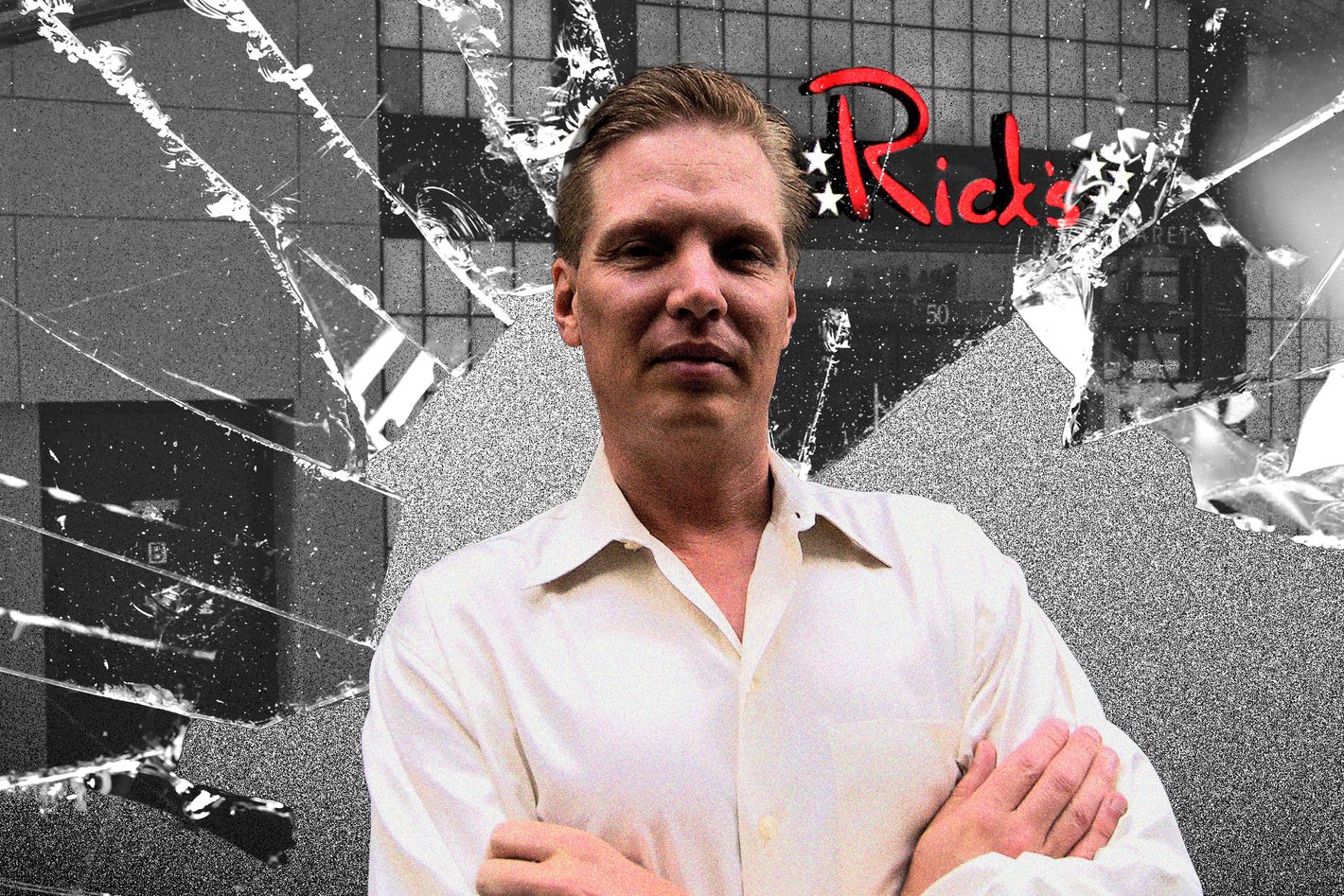 Photo-Illustration: Intelligencer; Photos: Getty, Google Maps
Photo-Illustration: Intelligencer; Photos: Getty, Google Maps
Eric Langan is not the average CEO of a company listed on the NASDAQ. For one, he says he does not employ a pilot for his private jet, choosing instead the “freedom” of operating it himself so he can stay at one of his 60-plus businesses until 3 a.m. before flying back home to Houston. “It’s my car, that’s the way I look at it,” as he puts it. Another factor separating him from his peers is his company’s business: strippers.
Langan is the chief executive of RCI Hospitality Holdings, which includes the chain Rick’s Cabaret as well as Tootsie’s Cabaret in Miami, which advertises itself as the largest strip club in the world and once held the Christmas party for the LeBron-era Miami Heat. Some chains are larger than RCI, but it appears to be the only publicly traded strip-club company in the world, with a significant ownership stake from BlackRock and Vanguard.
Over the past four decades, Langan has built this empire from a first location in Fort Worth that he opened in 1989 because he “didn’t like the way” his girlfriend, a dancer, was being treated at another club. As the company tells this creation myth, he financed the deal by trading in a robust baseball-card collection for $40,000. Since then, Langan has led RCI through decades of careful mergers and acquisitions, focusing on buying the land on which its strip clubs operate and then using that equity to fund further growth. “We own the majority of our real estate,” he said on one business podcast, explaining that RCI will close clubs that are stuck with long-term leases. When the pandemic rocked the hospitality industry, RCI cut its losses by opening locations, then going on a run of acquisitions in 2021, which boosted its stock. He has described his strip clubs as a cure for male loneliness in the post-pandemic world: “The beauty of a strip club is the girls have all the social skills that you need.”
Langan said in 2023 that he is eyeing a $1 billion market cap, a number that would make it so that “corporate America” would think of RCI as more than “just strip-club guys.” Still, he likes to stay close to the action, the kind of CEO who tweets out an open invite for his followers to watch a big fight with him at one of his clubs: “We drink, we watch fights, we hang out with the girls, have a good time.”
But these good times may be jeopardized by charges brought last week from the office of New York attorney general Letitia James, which accuses Langan and other top RCI executives with 79 counts including conspiracy, bribery, and criminal tax fraud. The scheme allegedly focused on bribing an auditor with lap dances and lavish trips in order to skimp out on over $8 million in sales taxes from three midtown clubs: Rick’s Cabaret, Vivid Cabaret, and Hoops Cabaret.
The alleged wrongdoing concerns the fake money the clubs hand out to their clientele to throw at their dancers. Rick’s New York clubs made a 20 percent premium selling these “dance dollars” to their audience but allegedly failed to pay sales tax on them. So when a state tax auditor visited between 2012 and 2023, the RCI executives allegedly bribed him with at least 13 comped trips to their clubs in Miami, including the megacomplex, Tootsies. On these trips, the auditor was given up to $5,000 per day in “dance dollars” for private dances, according to the indictment.
The auditor, whose name has been redacted, had a lot of fun over the years. “I need some more dancing dollars,” he texted the RCI accountant one night in February 2019. Three years later, he texted, “This was the best trip I had in Florida. The girls were very beautiful and nice. On Thursday night, there so many beautiful women. That’s why I do many lap dances instead of going to the room. I hope we can have another trip before the Summer. Thanks again for making making the trip great and better before.” Court records state the auditor is also expected to face felony charges.
Prosecutors claim Langan was aware of the deals between his accountant and the auditor. In September 2023, another executive texted Langan that the accountant was able to get the auditor to reduce Vivid Cabaret’s tax liability to $47,000 in exchange for “a couple trip.” For one Miami excursion, his accountant texted Langan to approve an auditor strip trip to Florida. “Whatever you think is fine,” Langan texted back. To hide the alleged bribes, the company recorded the trips as “promo” or “miscellaneous” expenses.
An attorney for RCI said in a statement that the executives “deny the allegations and will take all necessary action to defend themselves against these overreaching charges.” But the company has been dogged by other accusations of impropriety for years.
In 2014, Rick’s Cabaret in Manhattan paid a $15 million settlement to more than 50 of its dancers after a federal judge found the club had improperly classified employees as independent contractors so they could avoid paying minimum wages. In Colorado, an auditor determined in February that RCI owed its employees at two Denver strip clubs over $11 million after it was found to have routinely withheld tips from bartenders and dancers. The investigation also found that dancers, who had to pay an $85 fee per shift “for the privilege of working,” were frequently slapped and photographed without their consent.
RCI’s legal issues go beyond withholding strippers’ tips. In 2020, the company settled with the Securities and Exchange Commission after it alleged RCI did not report $615,000 in executive compensation over a five-year period. Investigators also found the company failed to disclose six-figure payments to Langan’s father and brother to make patio furniture for their line of restaurants, Bombshells, which Langan has described as “more risqué” than Hooters. RCI also allegedly reimbursed him for flights he took to Cancún with his girlfriend, who was on the payroll for almost five years.
RCI’s latest civil lawsuit is happening in Illinois, where dancers at Rick’s Cabaret Chicago allege the company was aware that they were being assaulted “nearly every single shift” but did not act to keep them safe from clients who bit, choked, and slapped them. In August, a federal judge overturned an attempt from RCI to dismiss the suit.
With multiple class-action law firms in New York digging around for a potential case related to the charges, RCI Hospitality Holdings’ stock fell to its lowest point in five years. The underlying business is showing cracks. The Financial Times reports that the company’s net debt is equivalent to its current market cap around $250 million. Its executives face potential prison time, and much has changed since the company went public exactly 30 years ago. “Everything is recorded,” Langan said in 2023. “All the he said, she said, it’s all documented these days.”
From Intelligencer - Daily News, Politics, Business, and Tech via this RSS feed

